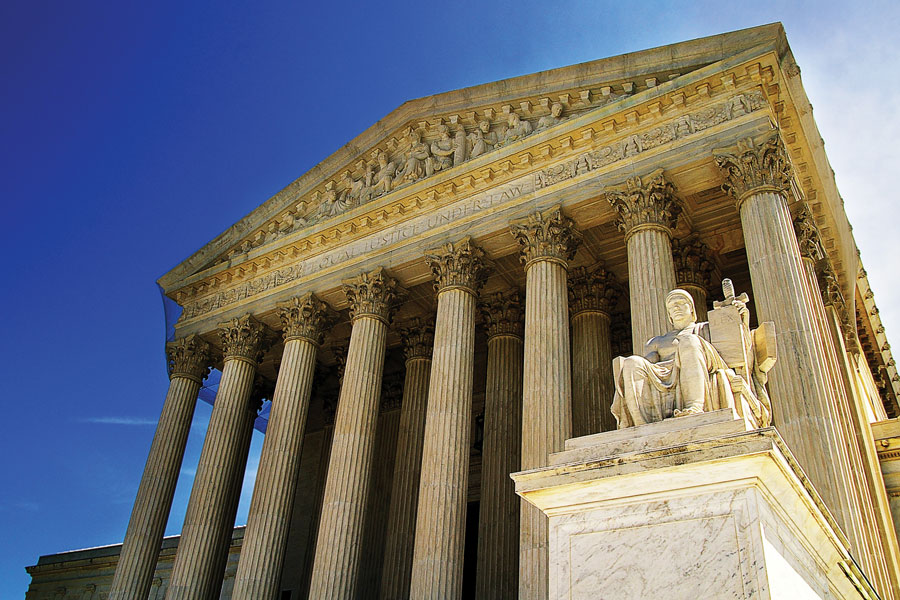

This week, the Supreme Court is set to deliberate on a significant case, SEC v. Jarkesy, that questions the constitutionality of the Securities and Exchange Commission's internal judicial processes. Central to the case is whether the SEC's use of in-house administrative law judges infringes on the Seventh Amendment's guarantee of a jury trial.
This legal challenge stems from the SEC's actions against George R. Jarkesy, who was accused of investment-related fraud in 2013. Jarkesy's case, adjudicated through the SEC's in-house system established under the Dodd-Frank Act, resulted in a $300,000 civil penalty. The SEC accused Jarkesy and his advisory firm, Patriot28, of several violations, including misrepresenting fund details and overvaluing assets to charge higher fees.
In 2022, the 5th Circuit Court of Appeals ruled 2-1 that this practice was unconstitutional, as civil penalties for fraud are traditionally subject to jury trials in common law and are routinely handled in district courts. Additionally, the SEC's discretion to choose between in-house adjudication and federal court for the same claims is challenged for violating the nondelegation doctrine. Congress failed to provide a guiding principle for this choice, leading to concerns about improper delegation of power. Finally, ALJs are classified as "inferior officers" with considerable removal protections, which could infringe upon the president's constitutional duty to ensure the faithful execution of laws.
The Supreme Court's examination will focus on these three key issues. Solicitor General Elizabeth Prelogar, representing the government, argues that the Seventh Amendment does not extend to administrative adjudications by federal agencies. Peggy Little, senior litigation counsel at the New Civil Liberties Alliance, counters this view, noting the importance of jury trials, especially in cases where the government pursues damages against individuals, potentially impacting their "life, liberty, reputation, or property."
Jarkesy's legal team argues that the constitutional limits on unchecked executive power and the historical importance of civil juries as a check on government authority. They highlight the stark contrast in the SEC's success rates in in-house proceedings versus those in Article III courts, where juries are utilized.
An amicus brief by former U.S. Attorney General Edwin Meese III, along with constitutional scholars Steven Calabresi and Garry Lawson, describes the absence of jury trials in government-related cases as "Orwellian and terrifying." The brief stresses the necessity of jury trials in securities fraud cases, particularly against the federal government with its vast resources.
This case follows the Supreme Court's April ruling allowing individuals to challenge SEC and Federal Trade Commission complaints directly in federal court, bypassing the agencies' internal proceedings. The SEC had previously acknowledged a "control deficiency" that compromised the separation between its prosecutorial and judicial functions, leading to the dismissal of 42 cases.
George Jarkesy founded two hedge funds, managed by Patriot28, with $24 million in assets from over 100 investors. The SEC began investigating in 2011 and later charged Jarkesy with fraud through an in-house proceeding. Jarkesy contested this in U.S. District Court for the District of Columbia on constitutional grounds, but his injunction was denied due to jurisdictional issues.
Subsequently, an administrative law judge found Jarkesy guilty of securities fraud. During his appeal to the commission, the U.S. Supreme Court ruled in Lucia v. SEC that the SEC's ALJs were appointed incorrectly. Despite this, Jarkesy did not seek a new hearing. The commission upheld the fraud verdict and penalties, dismissing Jarkesy's constitutional challenges.
Jarkesy then appealed to the U.S. Court of Appeals for the 5th Circuit, which overturned the previous rulings, citing several constitutional breaches, and sent the case back for further proceedings.

The move to charge data aggregators fees totaling hundreds of millions of dollars threatens to upend business models across the industry.

The latest snapshot report reveals large firms overwhelmingly account for branches and registrants as trend of net exits from FINRA continues.

Siding with the primary contact in a marriage might make sense at first, but having both parties' interests at heart could open a better way forward.

With more than $13 billion in assets, American Portfolios Advisors closed last October.

Robert D. Kendall brings decades of experience, including roles at DWS Americas and a former investment unit within Morgan Stanley, as he steps into a global leadership position.
Orion's Tom Wilson on delivering coordinated, high-touch service in a world where returns alone no longer set you apart.
Barely a decade old, registered index-linked annuities have quickly surged in popularity, thanks to their unique blend of protection and growth potential—an appealing option for investors looking to chart a steadier course through today's choppy market waters, says Myles Lambert, Brighthouse Financial.
